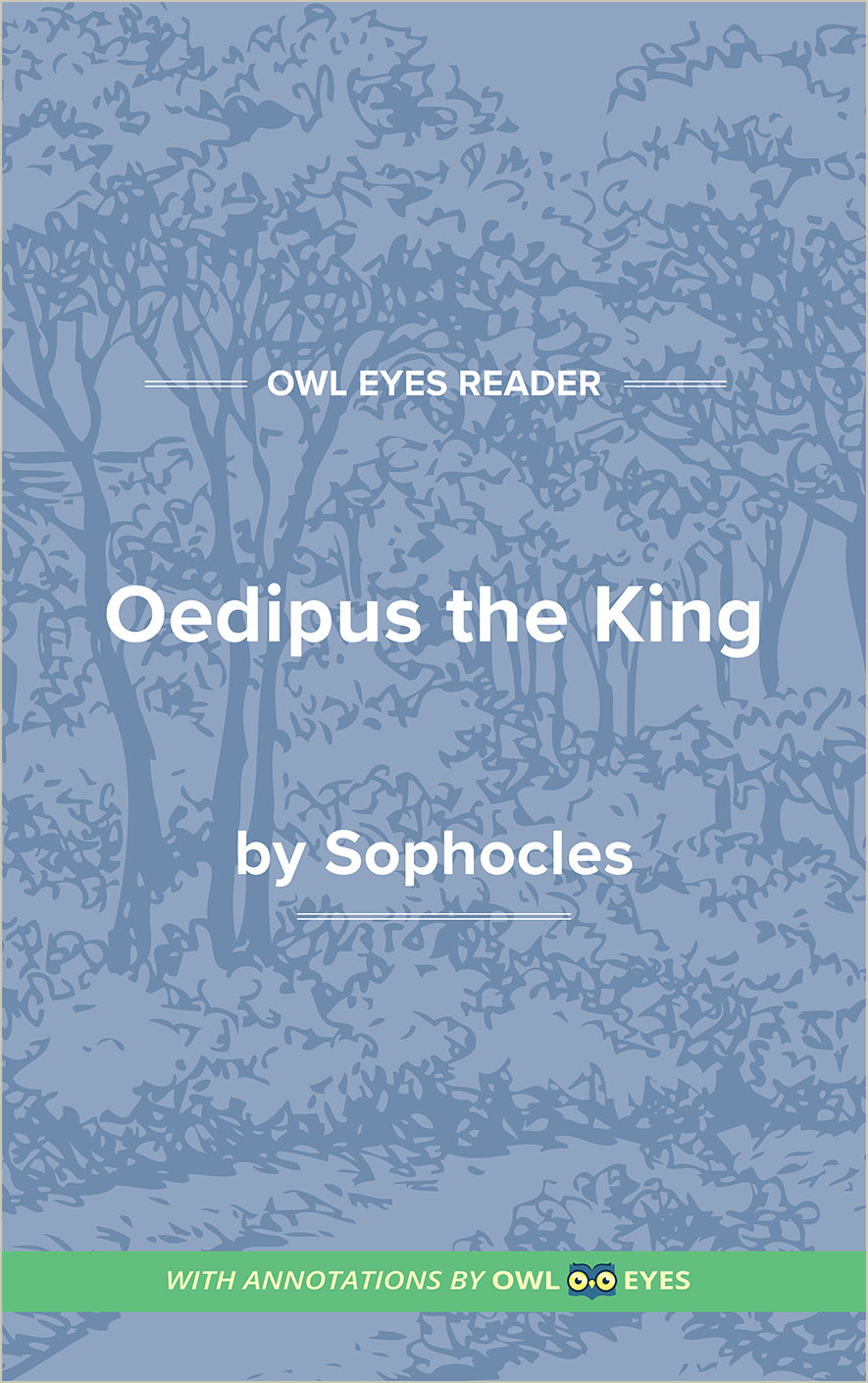Analysis Pages
Literary Devices in Oedipus the King
The Chorus: In Greek tragedies, the chorus is a group of bystanders who comment on and react to the events of the play, often providing crucial information when needed. Aristotle found Sophocles’s use of the chorus to be ideal, writing in Poetics that “The chorus too should be regarded as one of the actors; it should be an integral part of the whole, and share in the action, not in the manner of Euripides but of Sophocles.” The chorus often plays an interpretive role, providing keen insights into the emotional and thematic developments of the play.
Hamartia: First coined by Greek philosopher Aristotle in his Poetics, the “hamartia” refers to a character’s fatal flaw. Over the course of a narrative, the hamartia unconsciously causes a series of increasingly unfortunate events to unfold. Thus, the interior flaw, the blind spot in the character’s psyche, is projected onto the outer world. One important aspect of the hamartia is that it is particular to the character, rather than a generalized human flaw.
Aristotelian Tragic Plot: In Poetics, Aristotle defined and laid out the archetypal plot of the tragedy. A great or important person experiences a reversal of fortune. Following a triggering event at the start, the plot develops until it reaches a turning point at the middle. This turning poin
Literary Devices Examples in Oedipus the King:
Oedipus the King
🔒" the burden that I bear Is more for these my subjects than myself. ..." See in text (Oedipus the King)
"by a god inspired ..." See in text (Oedipus the King)
"Armed with his blazing torch the God of Plague Hath swooped upon our city emptying The house of Cadmus,..." See in text (Oedipus the King)
"Pallas..." See in text (Oedipus the King)
"CHORUS (Str. 1) Who is he by voice immortal named from Pythia's rocky cell, Doer of foul deeds of bloodshed, horrors that no tongue can tell?..." See in text (Oedipus the King)
"(Str. 1)..." See in text (Oedipus the King)
"A fell pollution that infests the land,..." See in text (Oedipus the King)

